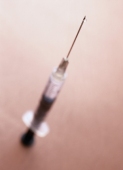
THURSDAY, Feb. 11 (HealthDay News) — In a recent mumps outbreak occurring in the eastern United States, even some of those who were vaccinated against the infectious illness got sick, health officials report.
A study released Thursday by the U.S. Centers for Disease Control and Prevention tracked an ongoing outbreak of mumps, largely confined to an orthodox Hasidic Jewish group. The outbreak started among boys attending a religious summer camp in New York State and continued when the youngsters returned to their homes in New York and New Jersey. Currently some 1,521 cases have been reported, with more individuals coming down with the disease.
The mumps virus can cause swelling and pain in the salivary glands, giving people so-called “chipmunk cheeks,” as well as fever, headache, sore throat and pain when swallowing. Other symptoms include loss of appetite, vomiting and tired, achy muscles.
Symptoms can last for up to 10 days, and the disease can be spread one to two days before symptoms start and for up to nine days after symptoms appear. It can take up to 25 days after exposure to mumps before symptoms appear.
Mumps is a self-limiting disease with no specific treatment. It is best treated with bed rest and over-the-counter medications such as acetaminophen to reduce fever, according to the CDC.
“The outbreak has been ongoing since the end of June,” said study co-author and CDC epidemiologist Kathleen Gallagher. “Ninety-seven percent of cases are among this Jewish community.”
The outbreak has probably been confined to this group because they have less contact with the wider community, Gallagher noted.
She said the outbreak started in a summer boy’s camp. “The original [patient] case had traveled to Great Britain, where they are having, and have been having, an ongoing outbreak of mumps for a while now,” she said.
The report is published in the Feb. 12 edition of the CDC’s Morbidity and Mortality Weekly Report.
Although the outbreak started among boys and remains mostly among them, the disease has spread to some adults and girls, Gallagher said. The concentration of the outbreak among boys is largely due to the separation of these boys and girls in school and other social and religious activities.
Most of the people who have become sick had received the mumps, measles and rubella vaccine (MMR), according to the report. In fact, 88 percent had received at least one dose of the vaccine and 75 percent had received two doses.
However, the vaccine is not 100 percent effective, the CDC team noted. Studies have found one dose 73 percent to 91 percent effective, while the effectiveness of two doses ranged from 79 percent to 95 percent, according to the report.
“That means if you were to expose 100 people to mumps, 10 of them might still come down with the disease,” Gallagher said. In this outbreak, these percentages are holding, she added.
Although the vaccine doesn’t protect everyone, it does work for most people and effectively prevents outbreaks from becoming worse. “We think that if we didn’t have such high levels of MMR coverage, we would have even more spread,” Gallagher said.
Outbreaks of mumps are not all that unusual, Gallagher said.
“We have had outbreaks of mumps in communities that have had two doses before,” she said. In 2006, there was a large outbreak of mumps among college students in the Midwest, she noted.
And mumps remains prevalent in other areas of the world.
“While we are well-vaccinated against mumps in the United States, many countries throughout the world don’t vaccinate at all against mumps,” she said. “There is a lot of mumps circulating globally. This means that anytime there is a potential for importation like happened with this summer camp, there is potential for mumps to be introduced even into a highly vaccinated population.”
More information
For more information on mumps, visit the U.S. Centers for Disease Control and Prevention.

